England Grand Slam deserved despite imperfections
- Published
- comments
Six Nations highlights: France 21-31 England
Maybe it is time for Englishmen to forget their long-held sporting antipathy towards Australians and start learning to love them instead.
After Trevor Bayliss transformed the national cricket side from slow and stodgy and beaten by the West Indies into Ashes winners within four Tests of taking charge, his compatriot Eddie Jones has now pulled off an Antipodean resuscitation perhaps even more remarkable.
Six months ago England were heading out of their own World Cup at the group stage, capable of beating only Fiji and Uruguay. They were tactically flawed, confused in selection and apparently unhappy in each other's company.
In five matches, Jones has not only ended a 13-year wait for a Grand Slam - with the 31-21 win over France - but done so with a team that should have its best days ahead, and in a place where victories will always be that little bit sweeter.
England supporters can't afford to be fussy about where a Slam is won, not after the preceding two decades have brought just one. Not when Wales have won three, France two and Ireland another since their last.
Listen: the moment England clinched the Grand Slam
But triumphing in Paris has always had something special about it - for once the outsiders rather than the big brothers, a hard-core of the dedicated rather than quiet corporate, a long day that can turn into a longer night and oh, whoops, it's morning.
There were celebrations in the white clusters around St Denis and there will be celebrations back in Blighty, not only for the substance of the Grand Slam but the often anxious way it was achieved. Because France were much better than their recent dreary history indicated they would be, liberated at times as they were of old and motivated as much as anything by a desire to stamp all over an English party.
Match stats | ||
|---|---|---|
France | England | |
45% | Possession | 55% |
4 (1) | Scrums won (lost) | 6 (0) |
9 (4) | Line-outs won (lost) | 13 (0) |
8 | Pens conceded | 14 |
74 (6) | Rucks/mauls won (lost) | 81 (8) |
20 | Kicks from hand | 30 |
109 (19) | Tackles made (missed) | 115 (25) |
508 | Metres made | 376 |
8 | Offloads | 14 |
6 | Line breaks | 4 |
To a list that includes Tony Stanger, Scott Gibbs and Duncan Hodge was nearly added Maxime Machenaud, the scrum-half's seven perfect penalties from seven keeping his side always within tantalising reach and threatening to snatch away a Slam when it was within English fingers.
In a team that made remarkable 508m with ball in hand, wrecking-ball winger Virimi Vakatawa made an even more astonishing quarter of them.
As throughout the championship, this was another incomplete performance from England. They conceded 14 penalties, lost control for a significant period of the second half and looked increasingly anxious as Machenaud narrowed the lead at one late stage to just two points.
They could be forgiven those nerves, because that is exactly what defining contests on unforgiving foreign soil do to players, and they could be forgiven that slump because they got through it.
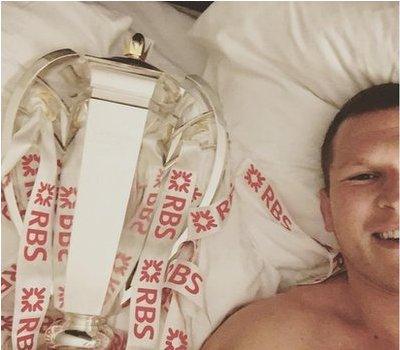
Captain Dylan Hartley was charged with looking after the trophy
Few Grand Slams are won with perfection. They are achieved as much as anything by a refusal to yield when reasons to yield are all around, by a cussedness as much as a cavalier spirit, by an ability to wriggle out of tight spots and to secure the tight, tense wins.
And deserve to win England did. They scored three tries to none, had 55% of the possession and had 60% of the territory.
And they did it as a team. Thirteen tackles from George Kruis, which you might expect, and 15 from James Haskell, which some might not, but 13 too from Owen Farrell.
Tries from Danny Care, with a classic dart and dash from the Danny Care playbook, and a third in three Tests from Anthony Watson, but also with one from prop Dan Cole, when his first 60 Tests had seen him score just one other.
Turnovers from the back row, where they usually originate, but turnovers too - and more of them - from the second row, in Maro Itoje, and two more apiece from Farrell at inside centre and Mike Brown at full-back.
Stuart Lancaster has been the fall guy in much of this - characterised as the coach who oversaw the worst ever finish by a World Cup host, the nice guy whose replacement by the grizzled, nastier Jones has brought instant dividends.
It's both unfair and an oversimplification. Four years ago, at the end of his own first season in charge, Lancaster was also in charge of a famous win at the Stade de France, having reinvigorated a side tainted by World Cup failure. He also gave international debuts and then experience to much of this side - Kruis, Watson, George Ford, Jack Nowell.
What Jones has done is less open surgery than simple remedy.
Grand Slam a great achievement - Jones
Chris Robshaw not working at openside? Swap him over to blindside, where his natural game finds a natural fit. No alternative who fits the bill as a modern-day jackalling seven? Spread the load equally around the team, and ask all to target the breakdown rather than making it the responsibility of just one.
Need a front row in the old-fashioned hard-bitten English image, and a line-out that holds under extreme pressure? Bring back Dylan Hartley, and trust him with the captaincy to keep his darker deeds in check.
No bash-it-up centre fit enough to start? Move Farrell out from his usual 10, let his natural aggression give you something in defence and his place kicking give you a reliability that Ford cannot quite always match.
Jones has had a little luck. A player like Itoje comes along very few times in a coach's career. None of his other principal men have struggled with injury the way some of Ireland's key men have. His first season opened with away games against the weakest two teams and continued with its toughest two opponents at home, both Wales and Ireland also finding their way into an amended style.
But luck alone does not win Grand Slams, and this was not a night for caveats.
The last England side to win a Slam did so after three years of near misses, with a team that had been together in its key combinations for four years, with players at the peak of their rugby prowess.
Jones's team has an average age of 24. His locks have less than 20 caps between them but have played like men with 50 apiece. He has a fly-half still fresh to the international game, a number eight that takes a tank-trap to bring down and, in Manu Tuilagi and Henry Slade, returning centres who in their contrasting way could add even more to a backline that scored tries in every match.
This was the end of a long wait, all right. It could also be the start of something rather special.
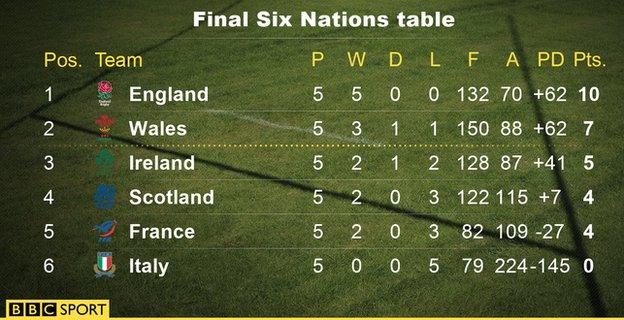
- Published20 March 2016
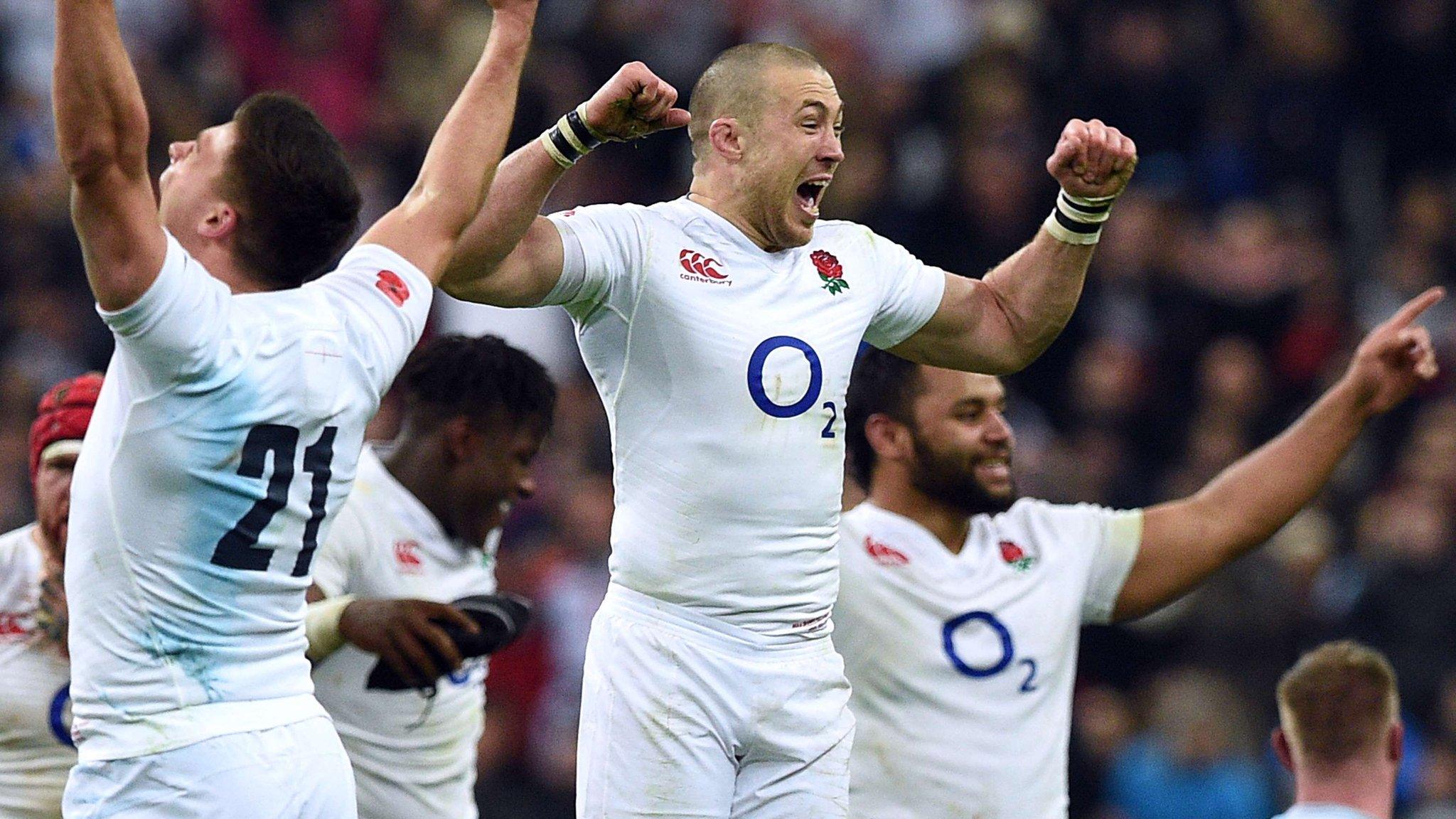
- Published19 March 2016
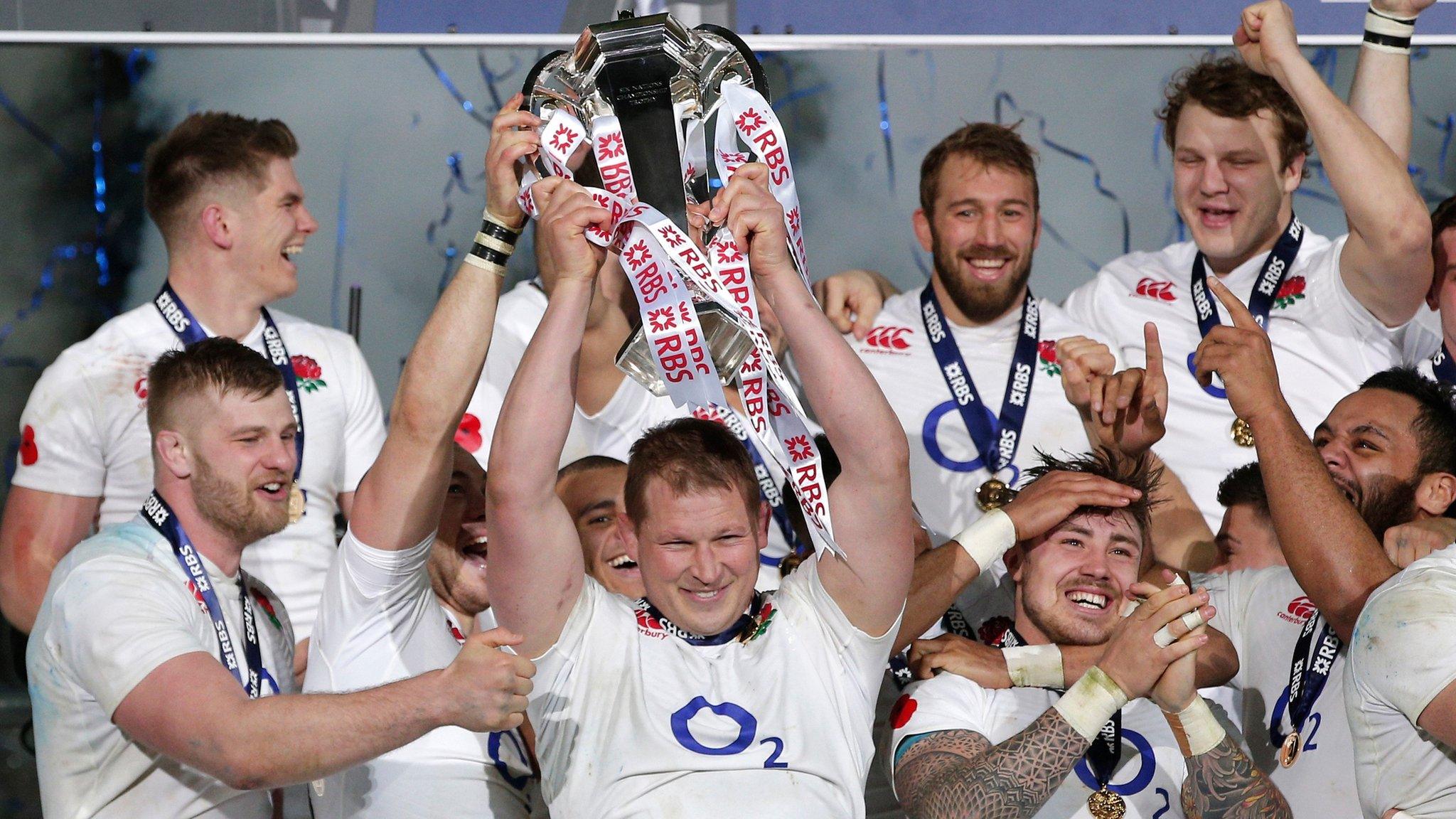
- Published15 March 2016
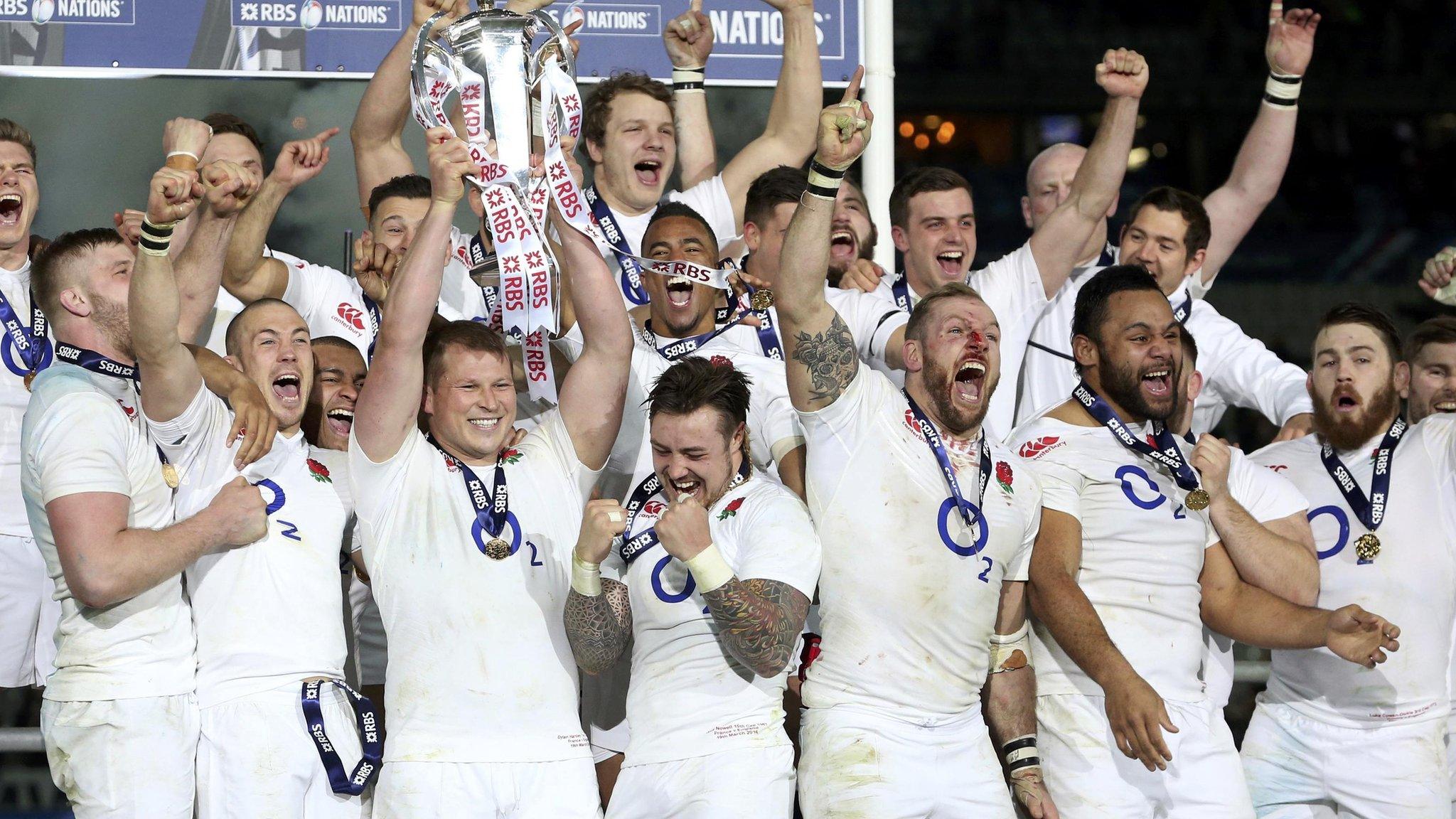
- Published10 February 2016
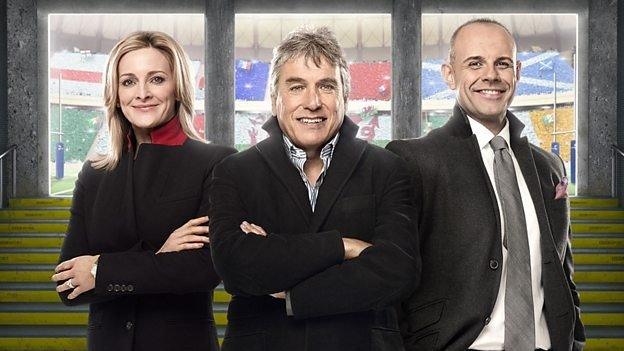
- Published14 September 2016

- Published15 February 2019
